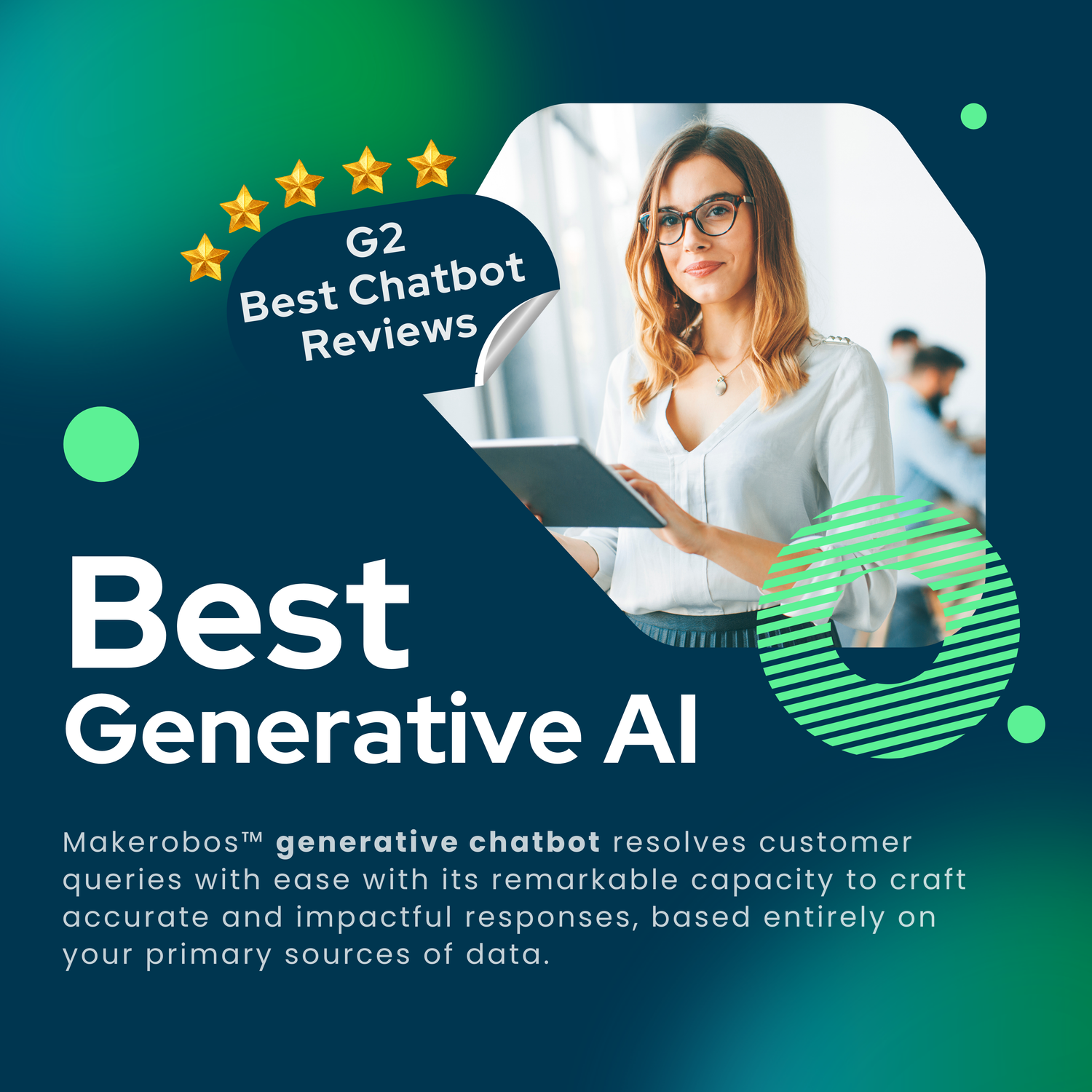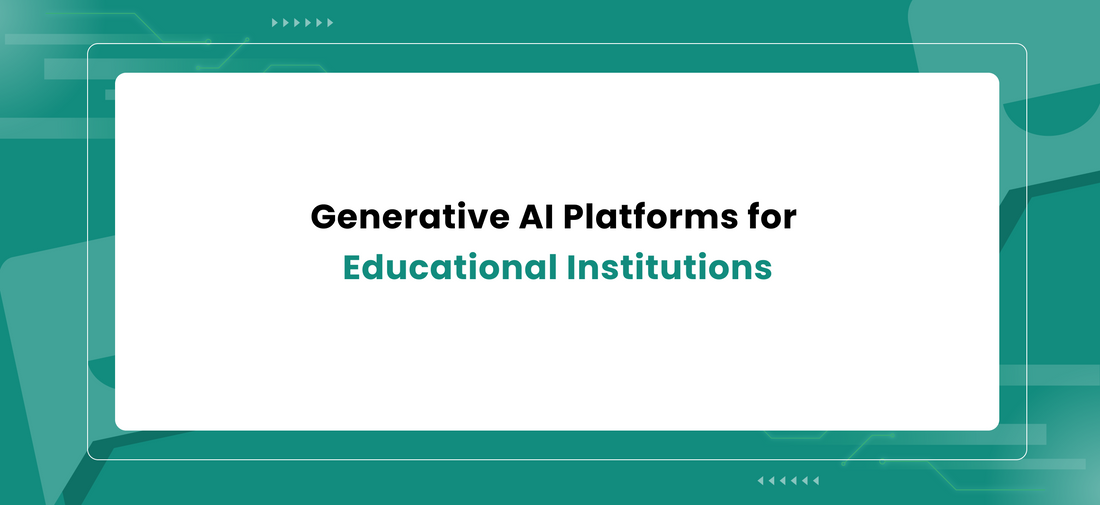Generative AI is revolutionizing various industries, and education is at the forefront of this transformation. The increasing integration of AI tools into both instructional and administrative processes has enabled educational institutions to personalize learning experiences, enhance pedagogical approaches, and streamline operations. This article critically examines prominent generative AI platforms available for educational settings, outlining their use cases, functionalities, and associated benefits. We also delve into how major players such as McGraw Hill, Google, and others are leveraging generative AI to support educators and learners.
Generative AI holds profound potential to reshape education by offering personalized, scalable solutions that address diverse student needs and learning preferences. The application of this technology enhances student engagement while equipping educators with data-driven insights to refine instructional practices. By automating routine administrative tasks, AI liberates educators to devote more time to fostering students' intellectual development and critical thinking skills.
McGraw Hill's New Generative AI Tools
McGraw Hill has introduced cutting-edge generative AI tools that are transforming learning by augmenting interactivity and personalization. Notable among these tools are the AI Reader and Writing Assistant, both of which demonstrate the power of AI in enhancing the efficacy of student learning.
AI Reader: Enhancing eBook Reading
McGraw Hill's The AI Reader leverages generative AI technology to make eBook reading more interactive. Students can engage directly with the text by asking questions, which the AI Reader addresses in real-time, thereby aiding comprehension and offering further elaboration when needed. This interactivity fosters a self-paced learning process, minimizing the dependence on human intervention.
Moreover, the AI Reader incorporates personalized learning paths that adapt to each student's unique progression. By analyzing reading behavior, the tool identifies areas where students struggle and delivers targeted content to bolster understanding. This adaptive approach ensures that every learner can confidently progress through the material, addressing individual gaps effectively.
Writing Assistant: Boosting Writing Instruction
McGraw Hill's Writing Assistant employs generative AI to assist students in composing essays, reports, and other written assignments. By providing feedback on sentence structure, grammar, coherence, and logical flow, it enables students to refine their writing skills and produce well-organized content. The Writing Assistant is also a valuable resource for educators, who can concentrate on mentoring students rather than manually reviewing each assignment.
In addition to technical feedback, the Writing Assistant enhances creative expression by offering suggestions to expand arguments and improve the depth of written content. This prompts students to think critically and adopt comprehensive perspectives on their topics. Furthermore, by tracking student progress over time, the tool helps educators identify areas for growth, thereby enabling personalized support.
Free AI Tools for Schools
A range of free AI tools is available for schools, empowering both students and educators by enriching classroom experiences and promoting individualized learning. Below are some of the most widely adopted tools.
ChatGPT
OpenAI's ChatGPT serves as a versatile virtual assistant for both teachers and students. It addresses questions, solves problems, and supports research, providing a flexible tool for learning. Teachers use ChatGPT to assist in curriculum planning, while students leverage it to comprehend complex topics and complete assignments.
Additionally, ChatGPT aids students in generating creative ideas for projects, overcoming writer's block, and exploring diverse perspectives. By employing natural language processing, the tool comprehends queries and provides contextually relevant answers, making learning more dynamic and interactive. Educators can also utilize ChatGPT to design quizzes, classroom activities, and discussion prompts that promote critical thinking.
Quizlet
Quizlet leverages AI to create flashcards and quizzes that facilitate efficient learning. Its adaptive learning capabilities allow for the personalization of study materials, tailoring content based on individual performance.
Quizlet's AI-powered study modes, such as "Learn" and "Test," employ spaced repetition and retrieval practice to improve long-term retention. By tracking student progress, Quizlet pinpoints areas of weakness and adjusts study sessions accordingly, ensuring a comprehensive grasp of subject matter. Educators can also foster collaborative learning by creating study sets that encourage peer interaction.
Grammarly
Grammarly is an established AI tool that supports students in enhancing their writing skills by providing real-time grammar and stylistic suggestions. It reduces the burden on educators by automating the correction of basic errors, allowing them to focus on content quality.
Grammarly's advanced features include tone detection, which enables students to understand how their writing is perceived by different audiences—crucial for honing persuasive communication skills. Additionally, Grammarly offers plagiarism detection, ensuring academic integrity by encouraging originality in student work.
Duolingo
Duolingo is an AI-powered language-learning platform that adapts lessons to each student’s pace and proficiency level. Its gamified learning environment makes language acquisition engaging and accessible for learners at various stages.
Duolingo's AI algorithms analyze student responses, tailoring exercises to address areas of difficulty, thereby providing a personalized learning experience. The app's interactive approach, complete with rewards and progress tracking, keeps students motivated. Teachers can also employ Duolingo for in-class activities, promoting collaborative language learning.
Socratic
Developed by Google, Socratic is an AI-driven app that assists students with math, science, and other subjects by providing step-by-step solutions and visual aids, enhancing understanding and making learning more interactive.
Socratic excels at deconstructing complex problems into simpler, manageable steps, which is particularly beneficial for students grappling with challenging material. The app also offers curated resources—including videos and articles—to support deeper exploration of concepts. Socratic serves as an invaluable supplementary resource for both students and educators.
AI Tools for Educators
AI tools possess transformative potential for educators, allowing for the enhancement of teaching quality and student outcomes. Understanding and integrating these tools effectively is paramount for creating a more engaging and impactful learning environment.
Importance of Educators Understanding AI Tools
To maximize the benefits of AI, educators must be proficient in integrating these technologies into their instructional methodologies. Effective implementation ensures that AI supplements rather than replaces traditional teaching practices, enriching the overall learning experience.
Professional development in AI literacy is essential for educators to stay abreast of the latest technological advancements. By developing a deep understanding of AI capabilities, educators can make informed choices regarding the tools that best serve their students' needs. Additionally, AI-proficient educators can guide students in using these tools responsibly and ethically.
How AI Improves Teaching
AI supports educators by enabling the tracking of individual student performance, customizing lesson plans, and identifying specific areas for improvement. It also alleviates administrative burdens by automating grading and attendance tracking, allowing educators to concentrate on critical pedagogical tasks.
AI-powered analytics provide insights into learning patterns, helping educators identify at-risk students and intervene proactively. Predictive analytics tools assist in determining which students may require additional support, thereby facilitating timely intervention. Furthermore, AI facilitates differentiated instruction by generating personalized learning resources tailored to individual learning needs.
Top Generative AI Education Tools in 2024
The year 2024 has witnessed significant advancements in generative AI tools for education. Below are some of the most notable platforms that are transforming educational practices.
Chat GPT
ChatGPT remains a versatile AI tool for educators and students alike, offering support in simplifying complex concepts, generating lesson plans, and creating interactive learning experiences.
Its conversational abilities make ChatGPT an invaluable resource for fostering collaborative learning and facilitating group discussions. The tool can simulate real-world scenarios, allowing students to apply theoretical knowledge in practical contexts. Educators utilize ChatGPT to design tailored learning experiences that align with curriculum objectives and promote active engagement.
Gemini
Gemini is a generative AI platform designed to build customized learning experiences. By employing adaptive learning algorithms, Gemini adjusts the curriculum based on student progress, ensuring scalable personalization.
Gemini's robust content creation capabilities allow educators to develop interactive lessons, incorporating multimedia elements such as videos, quizzes, and simulations. This enriches the learning experience and enhances content retention. Furthermore, the platform provides insights into student performance, enabling targeted instructional adjustments.
HeyHi
HeyHi is an AI-based tutoring platform that utilizes generative AI to deliver one-on-one personalized learning experiences. It bridges the gap between traditional tutoring and modern, AI-driven personalized education.
HeyHi's virtual whiteboard feature facilitates real-time interaction, making learning sessions more engaging. The platform's AI-driven insights provide tutors with a deep understanding of student strengths and weaknesses, allowing for tailored instruction. HeyHi also includes scheduling and attendance tracking features, making it convenient for both tutors and students.
Nolej
Nolej employs generative AI to develop multimedia-rich learning materials. It empowers educators to create interactive lessons that feature videos, quizzes, and engaging activities, making the learning process enjoyable.
The content creation tools in Nolej enable educators to produce visually appealing, interactive materials tailored to various learning styles. By incorporating animations, infographics, and simulations, Nolej helps demystify complex topics, making them more accessible. The platform also allows for the tracking of student progress, facilitating adaptive instructional planning.
Speechify
Speechify is a text-to-speech AI tool that converts written content into spoken words, aiding students who prefer auditory learning or those with visual impairments. It supports educational accessibility by offering content in diverse formats.
Speechify's AI-driven voice options offer a natural listening experience, improving comprehension and retention. The tool also supports multiple languages, making it ideal for language learners. By providing content in auditory form, Speechify helps students with reading difficulties or visual impairments access and engage with educational material.
Leveraging AI for Inclusive Excellence in Higher Education
Generative AI plays a pivotal role in promoting inclusive excellence within higher education by enhancing accessibility and fostering diverse learning environments.
Accessibility
Generative AI tools such as Speechify and text-to-speech applications ensure that educational content is accessible to students with disabilities. These technologies enable students with visual, auditory, or cognitive impairments to interact with course materials in a way that aligns with their needs.
AI-powered transcription services also contribute to accessibility by converting spoken lectures into text, ensuring that students who are deaf or hard of hearing can access instructional content. These tools are instrumental in creating an inclusive environment where all students have equitable access to learning resources.
Identities
AI tools empower educators to create learning environments that recognize and celebrate the diversity of student identities. Chatbots, for example, can foster a sense of belonging and provide support to students from marginalized backgrounds.
By utilizing AI to gather insights into students' backgrounds, educators can develop culturally responsive teaching strategies. AI-powered chatbots can also provide anonymous support, allowing students who may be reluctant to seek help in person to receive guidance in a safe space.
Epistemology
Generative AI tools support diverse epistemological approaches by recognizing that students learn and process information in different ways. AI-generated content can be tailored to provide multiple representations of concepts—visual, auditory, and textual—catering to varied learning preferences.
These tools enable students to select the learning format that best suits their needs, resulting in a deeper and more meaningful understanding of the subject matter. By accommodating diverse ways of knowing, AI fosters an inclusive and effective learning environment.
Leadership Imperative
Educational leaders must prioritize AI literacy and ensure the ethical deployment of AI technologies in higher education. Institutional leaders are responsible for guiding the equitable and responsible integration of AI, ensuring that its use benefits all students.
Leadership initiatives focused on AI adoption should emphasize ethical considerations such as data privacy, algorithmic bias, and the impact on student well-being. Fostering a culture of ethical AI use ensures that technologies enhance educational outcomes while safeguarding students' rights and interests.
Generative AI Tools for Educational Transformation
Generative AI tools offer vast opportunities for educational transformation. Below are some use cases and their value propositions for integration into the learning environment:
| Use Case | Value Proposition |
|---|---|
| Personalized Learning Paths | Customizes learning to fit individual needs |
| Automating Administrative Tasks | Frees up educators' time for more meaningful work |
| Real-time Feedback | Provides instant feedback for student improvement |
| Interactive Content Creation | Enhances learning through engaging multimedia |
| AI-assisted Assessment | Ensures consistency and accuracy in grading |
The integration of generative AI into learning environments offers numerous benefits, including heightened engagement, individualized instruction, and improved student outcomes. AI tools can foster interactivity, accommodate diverse learning needs, and support educators in delivering high-quality education.
Generative AI tools also facilitate the scaling of personalized learning, enabling institutions to provide individualized support to large cohorts of students. By automating administrative tasks and providing data-driven insights, AI empowers educators to concentrate on nurturing meaningful student relationships and cultivating rich learning experiences.
Eklavvya's Generative AI Tools for Education
Eklavvya, a leading AI solutions provider for educational institutions, offers generative AI tools designed to optimize exam management and assessment.
Significance of Generative AI
Generative AI is instrumental in delivering scalable, personalized educational solutions. Eklavvya's AI-powered tools streamline exam management while enhancing the quality of assessments, ensuring a more efficient evaluation process.
Eklavvya's assessment tools also alleviate the administrative burden on educators by automating processes such as question paper generation, grading, and result analysis. This allows educators to focus on delivering quality feedback and supporting student learning rather than managing logistical tasks.
AI Assessment and Exam Management
Eklavvya's AI assessment tools assist institutions in administering exams with greater accuracy and reduced effort. The tools use AI to generate question papers, evaluate student performance, and provide detailed feedback, thereby ensuring transparency and consistency in assessments.
These AI-driven assessment tools offer real-time analytics, allowing educators to monitor student performance and identify areas that require attention. By leveraging these insights, educators can make informed decisions to enhance teaching strategies and promote positive student outcomes.
Google's Generative AI Training for Educators
Google is at the forefront of providing generative AI training to educators, helping them leverage AI to enrich classroom teaching and improve student learning outcomes.
Features of Google's AI Training
Google's AI training program for educators covers fundamental AI concepts, the integration of AI tools into lesson planning, and the use of AI for tracking and analyzing student progress. The training imparts practical skills, empowering educators to effectively incorporate AI into their teaching.
Ethical AI use is a key focus of Google's training, ensuring that educators understand how to mitigate potential risks such as data privacy issues. By gaining hands-on experience, educators become confident in using AI to enhance pedagogical practices.
Benefits for Student Learning
Educators who participate in Google's AI training are equipped to personalize learning experiences, identify learning gaps, and provide differentiated support to students. AI tools help educators tailor instruction to meet each student's unique needs, thus fostering a supportive and effective learning environment.
The training also encourages educators to explore innovative approaches, such as deploying AI-powered chatbots for student support or integrating AI-generated materials into lessons. These novel methods create engaging learning experiences and equip students with the skills needed for the future.
Introducing Makerobos as a Generative AI Solution Provider
Makerobos, with its flagship product Frontman, is a prominent provider of AI-powered conversational interfaces (AIPCI). Frontman is a sophisticated generative AI platform that enables educational institutions to develop personalized chatbots that enhance student engagement and streamline support services. The platform's Instinct AI module empowers institutions to create AI-driven personas tailored to specific student needs, providing seamless, individualized interaction (learn more about Instinct AI here).
For instance, Makerobos' Story Builder is a no-code tool for designing conversational flows, allowing educators to easily create personalized interactions that guide students through learning resources (explore Story Builder here). With Rich Messaging capabilities, educators can incorporate multimedia elements into chatbot conversations, resulting in a more interactive and engaging experience (discover Rich Messaging here).
Additionally, Makerobos offers Audience Manager for tracking user interactions and customizing chatbot responses based on individual preferences (find out more here). These capabilities enable educational institutions to communicate more effectively, providing students with relevant and timely information. By leveraging Makerobos' tools, institutions can cultivate a supportive environment that promotes academic success.
To explore how Makerobos Frontman can facilitate educational transformation, register here to build a generative AI chatbot tailored to your institution's needs.
Frequently Asked Questions
-
What is generative AI in education?
Generative AI in education refers to the use of AI technologies to create personalized learning experiences, automate administrative tasks, and improve teaching and learning processes through intelligent content generation.
-
How can generative AI improve the learning experience?
Generative AI enhances learning by creating interactive, personalized content, providing real-time feedback, and delivering tailored support to students based on their unique needs.
-
Is generative AI accessible to all educational institutions?
Yes, many generative AI tools are available for free or at affordable rates, making them accessible to a broad range of educational institutions. Platforms like Makerobos also provide tailored solutions to facilitate effective AI integration.
-
How can educators get started with AI tools?
Educators can begin by exploring free AI tools such as ChatGPT, Grammarly, and Quizlet. They can also enroll in comprehensive training programs like Google's AI training for educators.
Conclusion
Generative AI platforms are fundamentally transforming the educational landscape, making it more personalized, inclusive, and effective. From enhancing student learning through tools like McGraw Hill's Writing Assistant and Google's AI training to empowering educators with platforms like Makerobos, the possibilities are expansive. Leveraging these AI tools allows educational institutions to create engaging, accessible, and impactful learning experiences for all learners.
The future of education lies in the strategic integration of AI technologies that complement traditional pedagogical methods while fostering a culture of innovation and inclusivity. As generative AI continues to advance, educational institutions must take proactive steps to adopt these technologies, ensuring that they deliver optimal learning experiences for all students.



